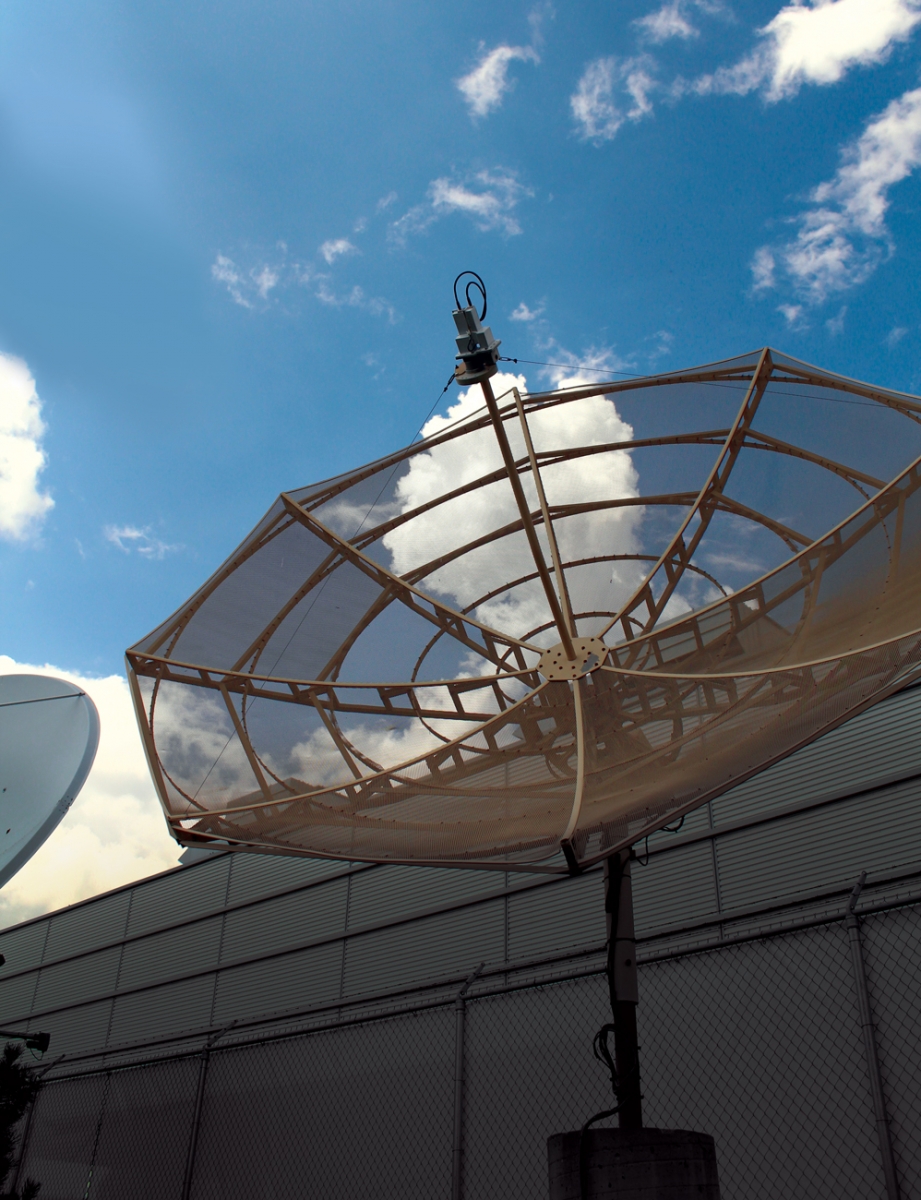At the Northlands Park, unused satellite dishes sit atop and around the racetrack. While they no longer receive signals, at least one will be repurposed.
The dish will be transformed into a giant “flower,” a hub on which bees can construct their hives. The old satellite dish will provide a great habitat for the queens and their drones.
Right now, there are four hives on the Northlands grounds. When the satellite dish is converted, that number is expected to rise to 10.
The recycling of the satellite dish is part of Northlands’ new agricultural strategy. Jessie Radies, former owner of The Blue Pear restaurant and founder of Live Local Alberta, has been Northlands’ local food associate for the last two years. She’s supervising a change in the organization’s mandate. Through large-scale fairs and trade missions, Northlands has always been there to help large agricultural producers access markets. But, with pilot projects such as the beehives and an urban farm, Northlands is looking to promote smaller-scale agricultural efforts that can be done within the city limits. Radies calls it a new “pillar” for the organization.
“These are very non traditional activities for Northlands to be involved in,” says Radies.
Radies said that 600 school kids visited the urban lettuce farm, which was developed on four unused lots, this year. The kids also visit the hives.
“We used to have to spend more to make those vacant lots look good,” she says. “Now, it’s an education asset, it’s producing food.”
As well, Radies is leading the charge to bring together Edmonton institutions that buy large sums of food on contract with local providers. Because institutions buy their food through government-approved purchasing processes, they haven’t been able to support local agriculture as they could. But Radies says that bringing the producers together with the purchasers – and large-scale distributors like Sysco – could bring some changes.
This article appears in the August 2016 issue of Avenue Edmonton. Subscribe here.
